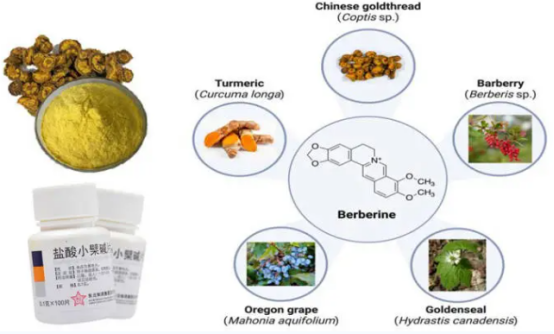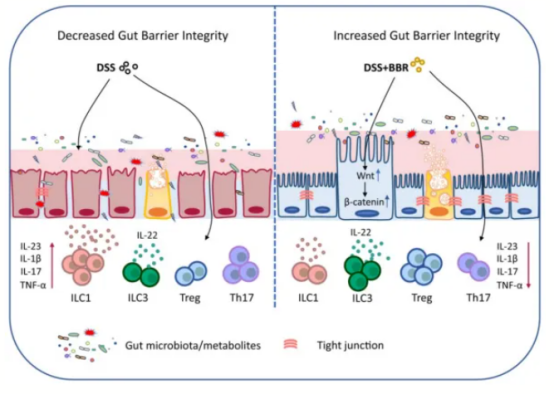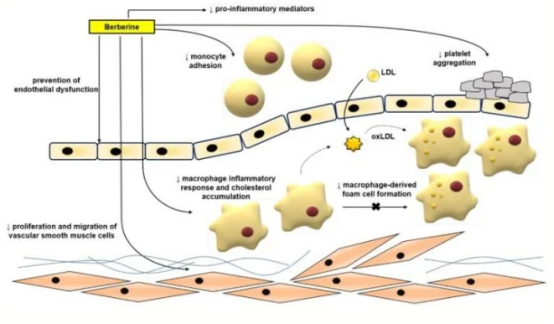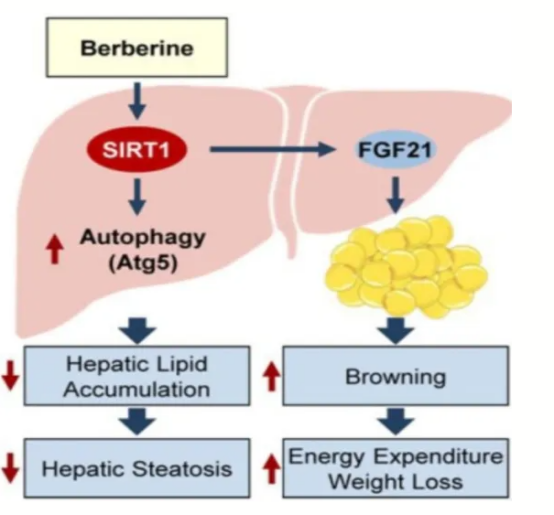The past and present of the "magic drug" berberine
10/29/2025 11:42:07
Many people feel unfamiliar with berberine. However, when the well-known Chinese idiom "A dumb person eats coptis chinensis - he can't express his bitterness" is mentioned, everyone will immediately understand. The bitterness of coptis chinensis described in this Chinese idiom comes from the berberine contained in it, which is what we call berberine. Berberine (BBR) is a naturally occurring plant-derived polyphenol that exists in many plants/herbs. It is the main active ingredient in coptis chinensis and phellodendron. It has a long history of medicinal use at home and abroad and has pharmacological effects such as antibacterial, anti-inflammatory, anti-gastric ulcer and treatment of jaundice.

01 Antibacterial effect Berberine has strong pharmacological effects such as antibacterial, anti-fungal and anti-viral. It is mainly used clinically to treat gastroenteritis, bacillary dysentery, scabies, suppurative otitis media and conjunctivitis. As a broad-spectrum antibacterial drug, berberine can inhibit the attachment of Gram-positive and Gram-negative bacteria by reducing the number of pili on the bacterial surface.
02 Anti-inflammatory effect The discovery of berberine's anti-inflammatory effect has a history of decades. In the early years, it was found that berberine can relieve the inflammatory response caused by cholera toxin in rats; in addition, berberine can inhibit the secretion of inflammatory factors IL-1, IL-6 and TNF, and show a strong anti-inflammatory effect on inflammation involving macrophages.

03 New uses of old drugs Studies have found that berberine hydrochloride and its derivatives have good performance in the treatment of hypoglycemia, hypolipidemics, anti-atherosclerosis, mental illness, immune system diseases, Alzheimer's disease, tumors and many other aspects. New pharmacological effects of berberine hydrochloride are gradually being discovered, and the discovery of these new effects also provides new possibilities for the future clinical application of berberine hydrochloride. 03-A hypoglycemic effect report can be used for the treatment of type 2 diabetes. Berberine can reduce glucagon, improve insulin resistance, and promote pancreatic beta cell regeneration and functional recovery. Its mechanism is: under glucose stimulation, berberine hydrochloride can increase insulin secretion and cell proliferation in pancreatic cells, showing the effect of insulin secretagogue.

03-B Hypolipidemic effect can reduce blood lipids and reduce the occurrence of atherosclerosis. Its mechanism is: berberine activates the AMP-dependent protein kinase (AMPK) pathway to upregulate genes related to fat decomposition, inhibit the expression of fat synthesis genes, and reduce the level of triglycerides, thereby achieving the effect of regulating blood lipids.

03-C Anti-atherosclerotic effect The role of berberine in inhibiting atherosclerosis includes improving endothelial dysfunction; inhibiting smooth muscle cell proliferation and migration; reducing monocyte adhesion, macrophage inflammation and cholesterol aggregation, foam cell formation and platelet aggregation. Future prospects Some time ago, the FDA approved Resmetirom for the treatment of NASH (non-alcoholic steatohepatitis) patients in stage F2-F3. Berberine has a significant therapeutic effect on NASH by regulating lipid metabolism and insulin resistance. Berberine exerts its role in enhancing autophagy through liver SIRT1, thereby downregulating the level of lipid deposition in hepatocytes and improving fatty liver. Activation of the berberine-SIRT1-FGF21 axis may be a new way to treat obesity by promoting the browning of adipose tissue and enhancing energy consumption. Through animal experiments, this study found that berberine can reduce the fat content in the liver, improve insulin resistance, and reduce inflammatory response, thereby alleviating the pathological manifestations of NASH. As the first new NASH drug, Rezdiffra may have new breakthroughs in the treatment of non-alcoholic fatty liver disease in the future. We stay tuned. The above scope of use has not been approved in our country, and you must follow the doctor's advice when taking the medicine.




